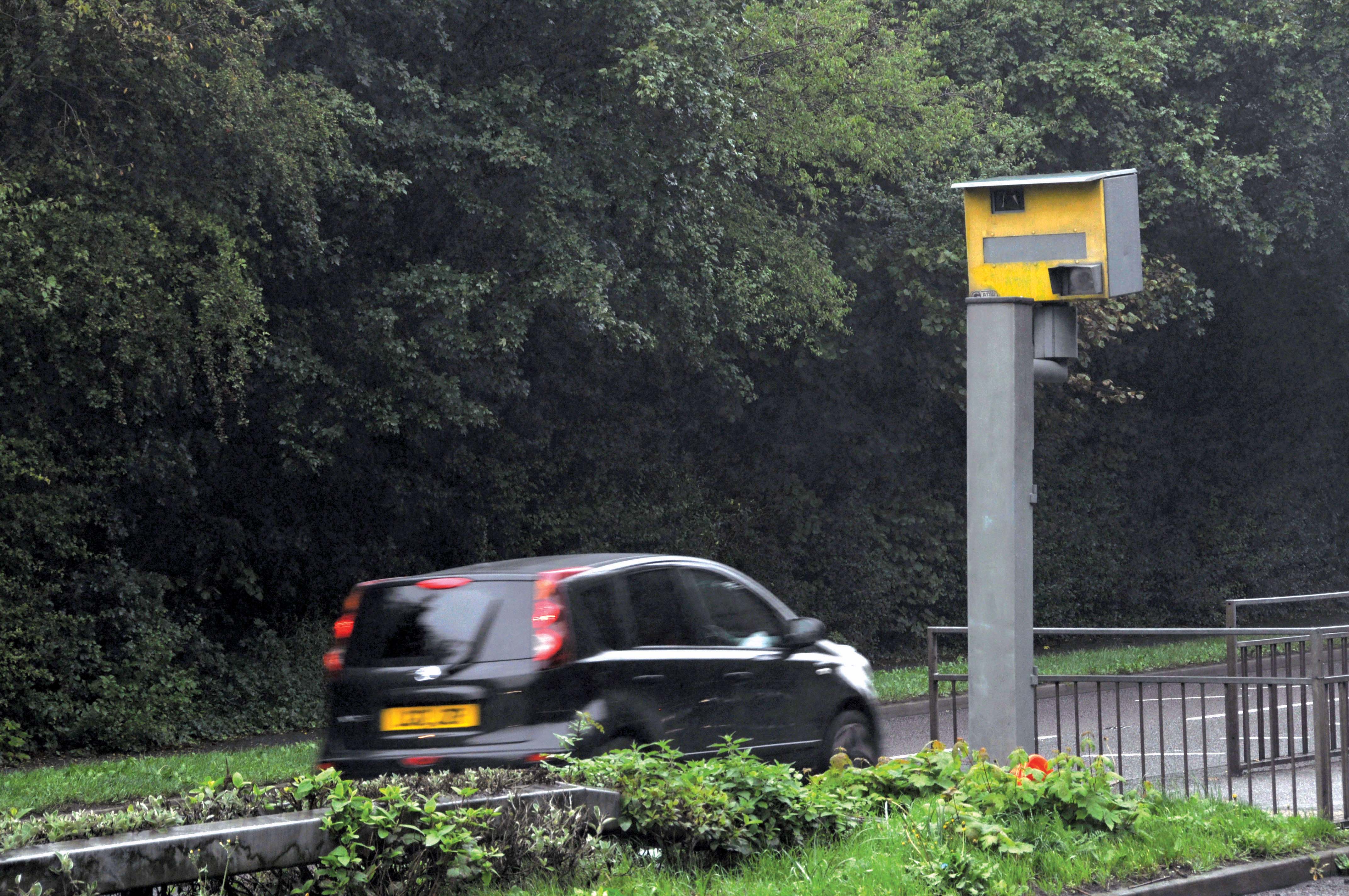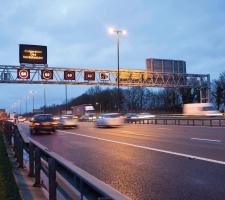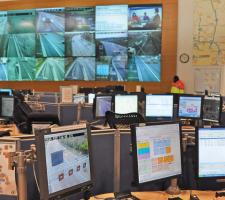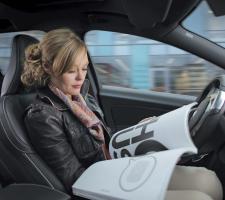
ITS International talks to Professor Stephen Glaister, director of the transport research and lobbying organisation, the RAC Foundation.
It is through the eyes of an economist that Professor Stephen Glaister, emeritus professor of transport and infrastructure at Imperial College London and director of the
“The RAC Foundation is an independent research body with secure funding so we are not beholden to any person or organisation and we don’t have to cater to the needs of members. This gives us a great deal of independence to say what we want to say, and to criticise those in authority if we see fit. When we make recommendations, and the occasional criticism, we always do so based on the evidence provided by the research we undertake,” he says.
The Royal Automobile Club (RAC) dates back to 1879 and the RAC Foundation was established in 1999 as a charitable organisation by an endowment granted when the RAC demutualised. Implicit in being a charity is that the work the Foundation undertakes has to be to the public benefit - in this case in relation to the interests of the ‘responsible motorists’ and it looks at four particular areas: Mobility, Safety, Environment and Economy.
“That does not constrain us to just talking about motorists because the trustees realise that we share the roads with other users and that public money for infrastructure has to be shared across all forms of transport.
“As the executive has to generate ideas under each of the four headings, we are always on the lookout for current issues or those that will become current. We then put together an annual research program and once approved by the trustees we commission research to throw light on those topics.
“That research usually throws up issues we think we should disseminate and campaign for the government to change,” says the Professor, adding: “we always lobby on the basis of the evidence, not just for the sake of lobbying.”
Recently the Foundation hit the headline with its campaign to get better regulation of privately owned car parks as, having received a legal opinion, it said private car park operators were not entitled to impose fines. “Private car parks in the UK are governed by Common Law which allows landowners [the car park operator] to sue over-stayers for damage, such as loss or revenue, but it does not allow them to impose a fine or a penalty as a deterrent,” he says.
This raised the prospect of tens of thousands of motorists claiming back fines imposed by private car parking and landowning organisations over the last few years, although this will be dependent on a legal case currently going through the courts.
The relevance of this to the ITS sector is not lost on the professor who says: “The question arises as to how you can fairly enforce a tariff for parking because it will almost certainly involve automatic number plate recognition or other systems to prove what a person has done and therefore how much they owe.”
Also provoking some controversy was research into the effectiveness of speed enforcement cameras that the Foundation undertook some time ago. The Professor is convinced about their effectiveness: “From the work we commissioned we are in no doubt that speed cameras do slow people down and they have saved a large number of lives.
“We are clear that they are there to reduce speeds and save lives and that’s what they do. When this government came to power it encouraged many of the cameras to be switched off but the authorities are gradually reactivating them as they realise their safety benefits and public’s general support for moderating speeds.”
The research also showed that less than 7% of the money raised by speed cameras went to the Treasury and there was no surplus for the local authority or police.
“Setting aside the human tragedy, the UK government calculates the benefit of avoiding each road fatality at £1.75 million and that’s the motivation, not collecting fines,” he adds.
According to the Professor, the roll-out of managed motorways [called Smart Motorways by the
While he also predicts additional, and more sophisticated, speed management systems in the future, an area equally important to the correct functioning of motorways is proving more difficult to enforce – that of lane discipline. In the UK, vehicles should move to the left hand lane (or the right in Continental Europe) when not overtaking. “It is illegal to overtake on the left [right in Europe] so if the motorway is to function correctly then motorists must observe the rules and move over.”
A current area of activity is lobbying for the introduction of graduated driving licences which would place restrictions on young and newly qualified drivers who statistics prove are at far higher risk of having an accident. “We’ve reviewed research from around the world to see how other countries have dealt with this problem and the evidence is incontrovertible; some form of graduated licencing, as they have in Scandinavia, Australia and North America, would make a big difference,” he says.
“We’ve put that case to the Government but they have been unwilling to act. They said they would but have not, which we are very upset about because people are being killed unnecessarily.
“A system that prevents young people driving with a lot of their friends in the car or between about midnight and 5am would save about 80 lives a year.”
The Foundation also commissioned early simulator-based work on drivers using mobile phones for sending/receiving texts while driving. This showed reaction times slowed by 35% - far worse than the 12% deterioration registered at the alcohol limit in England (35mg/100ml) or the 21% recorded by drivers under the influence of cannabis. Texting drivers also drifted out of their lane more often with steering control worse by 91%, compared with a 35% deterioration when under the influence of cannabis. There was a reduction in the ability to maintain a safe following distance.
“There is now plenty of evidence that using a hand-held mobile phone, sending messages and reading your texts or emails are very dangerous. While using a hand-held phone is illegal in many countries, the reality is that drivers will carry on using them unless feel they are likely to get caught. Many young drivers have grown up with texting and they will continue to do this as they get older so unless something is done about it, this is set to become an increasing problem.”
Vehicle manufacturers are not excluded from criticism when it comes to distracted driving. “Cars are increasingly sophisticated and full of electronic gadgets and my own car has the option to read your texts on a screen in the vehicle - and that seems very bad news.”
While acknowledging that badly designed and positioned satellite navigation systems can also create a distraction hazard, Professor Glaister believes texting and using a mobile phone is far worse because it creates a different type of problem. “It does something to your peripheral vision and your perception of what is going on around you – you only have to watch people texting while walking down the street to see them walking into things,” he says.
On a more fundamental level the Foundation does a lot of work on road maintenance and road capacity and has been involved with the reform of the strategic road network. “Successive Governments both in the UK and elsewhere have under-invested in their road network and it is down to organisations like us to point out international comparisons and highlight the UK government’s own analysis of benefits and costs of investing in roads in comparison to railways.
Big improvements in fuel efficiency of family cars will make the problem worse for many authorities across the world. In the UK, the government currently takes in some £28bn [$43bn] per year plus VAT in fuel duty and that will fall; they will have to do something about it.”
He says technology, including ITS, will help utilisation of the existing network road, especially in urban areas, but feels there is some questionable claims about how much it will be able to contribute.
“On inter-city routes the use of smart motorways is helpful but nowhere near good enough. Most congestion is time related and there are large portions of the day when roads are underused, so the next big step will be to find ways to utilise the available capacity by spreading the load more effectively. The way you do that is through time-based charging – and changing the cost in real time as this is increasingly happening around the world.
“In many ways the UK is an exception in not having widespread user charging, but since 2003 Central London has had a congestion charge which has been a tremendous success. The technology is available to do it on a wider scale but people always oppose it on principal and that’s a political and a messaging problem.”
He cites the French AutoRoute system as being funded through user charging and believes that model could be applicable elsewhere and predicts that unless the UK puts a charging system in place there will be problems in funding network maintenance and improvements.
Regardless of the funding mechanism, population growth and a growing economy in the UK and elsewhere will lead to increased traffic that will continue to pose challenges. “As a network gets close to capacity you have to manage it carefully and as a whole, and when there is an incident that causes a delay then ideally you need some kind of overview of how best to handle that situation. Highways England will have some capacity to do that and will be getting more by using progressive mobile phone data across the road network. It will also have ways to advise drivers what to do beyond the variable message signs.”
He cites the French AutoRoute system as being funded through user charging and believes that model could be applicable elsewhere and predicts that unless the UK puts a charging system in place there will be problems in funding network maintenance and improvements.
Regardless of the funding mechanism, population growth and a growing economy in the UK and elsewhere will lead to increased traffic that will continue to pose challenges. “As a network gets close to capacity you have to manage it carefully and as a whole, and when there is an incident that causes a delay then ideally you need some kind of overview of how best to handle that situation. Highways England will have some capacity to do that and will be getting more by using progressive mobile phone data across the road network. It will also have ways to advise drivers what to do beyond the variable message signs.”
Of more immediate and greater concern to the Professor is the jamming of satellite signals: “Drivers and an increasing number of the traffic management and charging systems rely on satnav. Already a problem is emerging where people who don’t want their position to be known, in the UK these are often van drivers, start jamming the signals - it is very easy to do and disrupts the signals for other nearby users. It would be disastrous for an authority to invest heavily in that technology and it turns out to be unusable.”
The Foundation is now turning its attention to how to cater for an ageing population.
“Vehicles are generally designed for able bodied middle-aged people but the number of older drivers is set to increase very rapidly. There is a lot that technology can do to help older people continue driving and one issue will be how to licence people appropriately to keep them driving safely as long as possible. Once they lose the ability to drive they become completely immobile which puts enormous demands on everybody else to serve them.
“People tend to forget the advances that have already been made and the vast benefits from the likes of anti-lock braking systems and electronic stability control, and there will be a lot more of that type of thing that will help older drivers.”
However, the Professor is not convinced that autonomous vehicles will radically change the face of mobility – at least not over the next decade or so. “I don’t see complete autonomy happening for a very long time. And if it does it isn’t clear it will be a great help in terms of capacity and congestion because autonomous vehicles will have to be very safe and will require big safety margins. So autonomous vehicles could actually reduce road capacity rather than increase it – especially once pedestrians learn that the autonomous vehicle will stop if they step into the road.
“And autonomous vehicles will be available to anybody of any age, even if they can’t drive themselves, and will allow people to work while on the move rather than having to drive. So they could greatly increase the demand for the use of the road network at the expense of the public transport network. It is far from clear where this will go and how authorities will handle the issue but it does need to be thought through – and soon.”
















